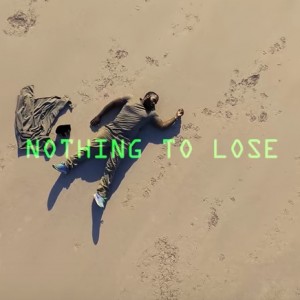
RAPstation Exclusive Interview: Chase Allen
By Rapstation Editor for Rapstation.com
Emerging Los Angeles-based rapper Chase Allen was raised in Philly and grew up in a musical household. His older brother was an emcee and producer while his middle brother was a producer, as well. After hearing Kanye West’s College Dropout, Allen was hooked on hip-hop. He soon realized he could be an artist, too, one that could reach inside, pull out raw emotion and put it all out on the table. Since then, he’s been steadily building a name for himself. With all odds stacked against him (his father passed away when he was 4 and his single mother had four kids to raise on a limited budget), he’s proving he has what it takes to not only escape poverty, but also rise to the top. Armed with tenacity and ambition, Allen has recently eleased the beautifully shot visuals for “Nothing To Lose,” which describes exactly what he’s going through. In Part I of the Chase Allen interview, the up and coming rapper talks about the first hip-hop album he got, some of his role models and mainstream hip-hop’s often vapid landscape.
RAPstation (Kyle Eustice): What was your household like growing up?
Chase Allen: My household was definitely musical. My oldest brother was an emcee and a producer. And my middle brother was a producer. They used to have everybody from all over come record in a closet [laughs]. I used to sit in and watch because I was too young. Until this day I still rehearse with a remote control in the mirror before shows like I did when I was 10 years old.
How did you first discover hip-hop? Do you remember the first album you got?
My first discovery of hip-hop definitely came from my big brothers for sure. I learned the concept of it early on. I remember the first day they let me write a song and record it .When I turned 12, my oldest brother Howie gave me and my friend a mic and a 4-track recorder and we recorded in his room. My first album that I purchased was Kanye West College Dropout. It definitely changed my life. Where and when I grew up street rap was prominent and taking over. Kanye made me feel like I can be me and express myself truly. Rapping about violence wasn't ok for me anymore.
What made you think, ‘Ok, this is something I could do, too?’
Growing up in Philly in the hood you either hustled, played ball or sold drugs. Biggie hit it right on the mark. I hustled for a minute and the idea of always having to look over my shoulder wasn’t peaceful for me. I played football, but I shattered my ankle in high school after a dirt bike accident so doing that professionally instantly was out the window. So the only way I can think of getting out of poverty was by expressing myself. So at 18 on bedrest for the summer of 2007, I focused on taking it serious and dug deep within my emotions and wrote songs all summer. That was my life changing moment.
Who were some of your role models growing up and why?
Seeing my mom take care of four kids with no help from anyone made her my top role model. Till this day I'm still trying to figure out how she raised four kids, manage to keep us all out of jail, still kept us fresh, and worked so much. Most of the other role models were men in the community and people I saw on television. My father was killed in a car crash when I was 4, so growing up I always looked up to the men I saw—like Mr. Cooper, Bill Cosby or Uncle Phil. I was just looking for guidance and I can honestly thank the whole entire hip-hop community for showing me the way, especially everybody from the Wu-Tang Clan.
The single “Nothing To Lose” is heavily jazz influenced (and awesome). How much of a hand did you have in its production?
“Nothing to Lose” was produced by my good friend Johann Sebastian. He is a producer I met randomly one day coming out a crepe spot on South Street in Philly. I had given him a CD on his way out and he hit me up later on SoundCloud like, ‘Hey man let’s collab’ and it was on from there. Only credit I can give myself if any is being able to recognize how dope he is as a producer. He already had the record done. I'm just glad I was able to express myself freely. His “soul” matched mine. We have plenty of other records together as well, some of which you will hear on the forthcoming project Far From Home.
What do you think of hip-hop’s often vapid landscape?
I think it's perfect right now especially for an artist like me. Everything is one sided and unbalanced. So when I drop records people appreciate substance more and gravitate towards it a lot faster. I can appreciate the Kendricks and the J Coles, who are doing the same style of music because they keep me on my toes.